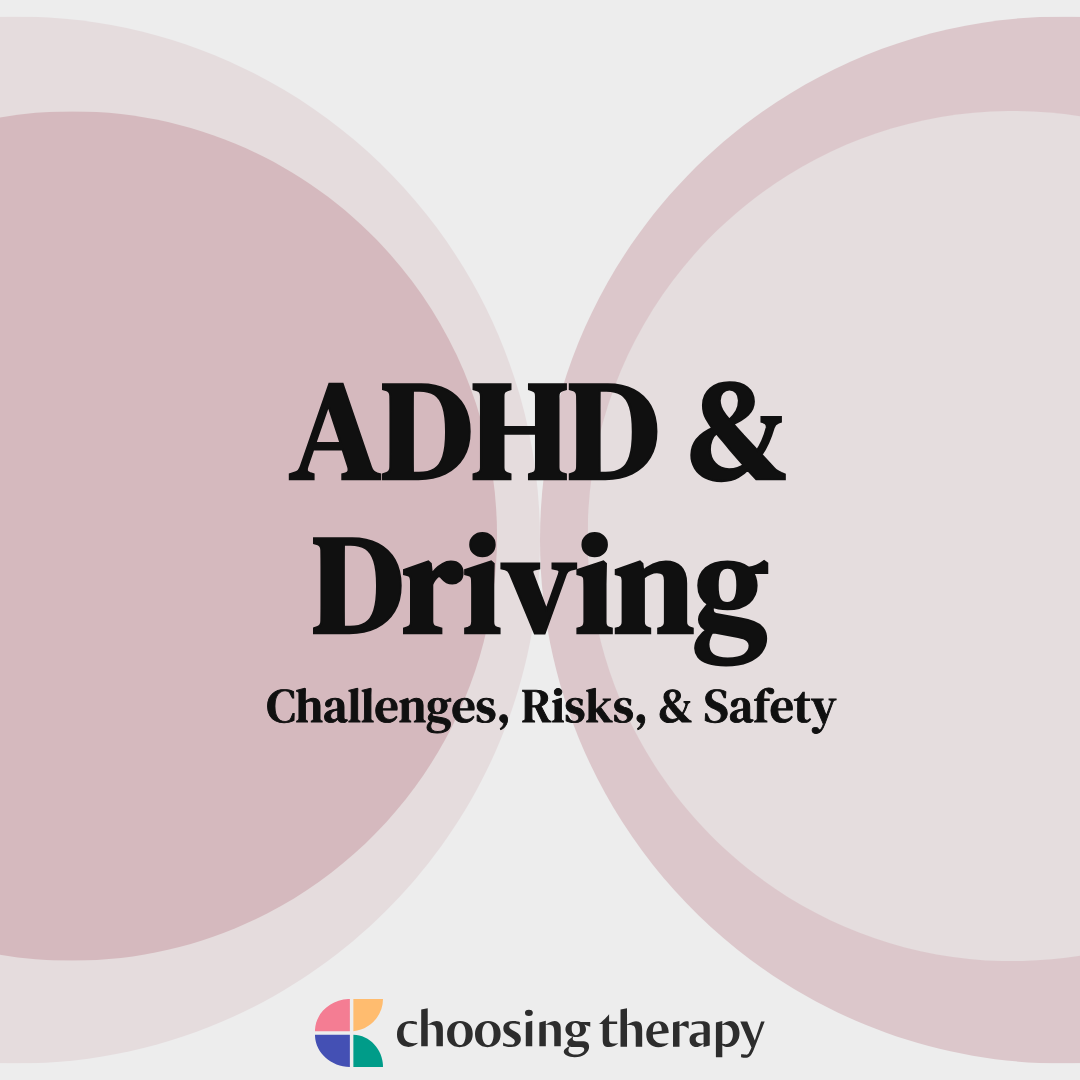The Impact Of ADHD On Driving Safety: A Research Review

Table of Contents
Increased Risk-Taking Behaviors in Drivers with ADHD
Impulsivity and inattention, hallmark symptoms of ADHD, significantly contribute to risky driving behaviors. These core symptoms impair judgment and impulse control, leading to increased likelihood of accidents. While precise accident statistics solely attributed to ADHD are difficult to isolate, studies suggest a correlation between ADHD and higher rates of traffic violations. The challenges extend beyond simple speeding tickets; the impulsive nature of ADHD can manifest in several dangerous driving habits.
- Higher rates of speeding and reckless driving: The urge for immediate gratification often overrides caution, resulting in excessive speeding and disregard for traffic laws.
- Increased likelihood of tailgating and lane violations: Impulsivity and difficulty maintaining attention can lead to unsafe following distances and frequent lane changes without proper signaling.
- Greater propensity for distracted driving (e.g., cell phone use): The struggle with sustained attention makes individuals with ADHD more susceptible to distractions, including cell phone use, leading to compromised driving performance.
- Difficulty with spatial awareness and judgment: Challenges with processing visual information and estimating distances increase the risk of collisions and near misses.
Medication, when appropriately prescribed and managed, can significantly reduce these risky behaviors by improving focus and impulse control. However, it's crucial to understand that medication is not a guaranteed solution and should be combined with other safety strategies.
Cognitive Impairments and Driving Performance
Beyond behavioral risks, ADHD presents significant cognitive challenges that directly impact driving ability. Difficulties with sustained attention, working memory, and executive function are crucial factors influencing driving performance. These cognitive impairments can affect reaction time, decision-making, and overall driving competency, leading to increased risk.
- Slower reaction times to unexpected events: The inability to quickly process and respond to unexpected situations, such as a sudden stop or pedestrian crossing, significantly increases accident risk.
- Difficulties processing multiple stimuli (e.g., traffic, pedestrians): The cognitive overload of managing multiple inputs simultaneously (traffic lights, other vehicles, pedestrians) can overwhelm individuals with ADHD, hindering safe navigation.
- Problems with planning and executing complex driving maneuvers: Activities like merging into traffic, navigating intersections, or parallel parking require complex planning and execution, areas where individuals with ADHD often struggle.
- Increased risk of errors in judgment, especially in challenging conditions: Poor judgment under pressure or in complex driving situations, such as bad weather, is a common concern for drivers with ADHD.
Neuropsychological testing can provide valuable insights into an individual's cognitive strengths and weaknesses, helping assess driving fitness and identify areas for improvement.
Strategies for Improving Driving Safety in Individuals with ADHD
Mitigating the risks associated with ADHD and driving requires a multifaceted approach. Evidence-based strategies can significantly enhance safety, and open communication is key.
- Medication management and adherence: Consistent adherence to prescribed medication, when appropriate, is a crucial first step in managing ADHD symptoms and improving driving performance.
- Driving practice in controlled environments: Practicing driving maneuvers in safe, controlled environments, such as empty parking lots, can help build confidence and improve skills.
- Adaptive driving strategies (e.g., avoiding rush hour, using GPS): Modifying driving habits to avoid high-stress situations, such as rush hour, and utilizing assistive technologies, like GPS, can enhance safety.
- Regular driving assessments and monitoring: Periodic driving assessments and ongoing monitoring can help identify any emerging challenges and adjust strategies as needed.
- The use of technology to aid driving, such as lane departure warnings: Advanced driver-assistance systems (ADAS) can provide crucial alerts and support, compensating for some attentional difficulties.
The Role of Support Systems in Ensuring Driving Safety
Family members, therapists, and healthcare providers play a vital role in supporting individuals with ADHD to maintain safe driving practices. Regular check-ins, open communication, and a collaborative approach are essential for addressing challenges and adapting strategies. This support network provides crucial encouragement and accountability, contributing significantly to overall driving safety.
Conclusion: Understanding ADHD and Driving Safety for Safer Roads
This review highlights the increased risks associated with ADHD and driving safety. However, through proactive strategies including medication management, tailored driving training, and strong support systems, these risks can be effectively mitigated. Improving ADHD and driving safety requires a collective effort. Learn more about the impact of ADHD on driving safety, seek professional help if needed, and promote awareness of this important issue to create safer roads for everyone. Safe driving practices for individuals with ADHD are achievable with the right support and strategies.

Featured Posts
-
 Willie Nelson Drops New Album Before Turning 92
Apr 29, 2025
Willie Nelson Drops New Album Before Turning 92
Apr 29, 2025 -
 Wichita Black Hawk Helicopter Crash Pilots Fatal Error On Departure
Apr 29, 2025
Wichita Black Hawk Helicopter Crash Pilots Fatal Error On Departure
Apr 29, 2025 -
 Green Bay Packers A 2025 International Game Two Stadiums In The Running
Apr 29, 2025
Green Bay Packers A 2025 International Game Two Stadiums In The Running
Apr 29, 2025 -
 Ohio Doctors Parole Hearing Sons Struggle 36 Years After Murder
Apr 29, 2025
Ohio Doctors Parole Hearing Sons Struggle 36 Years After Murder
Apr 29, 2025 -
 Chargers To Kick Off 2025 Season In Brazil Justin Herberts Role
Apr 29, 2025
Chargers To Kick Off 2025 Season In Brazil Justin Herberts Role
Apr 29, 2025
